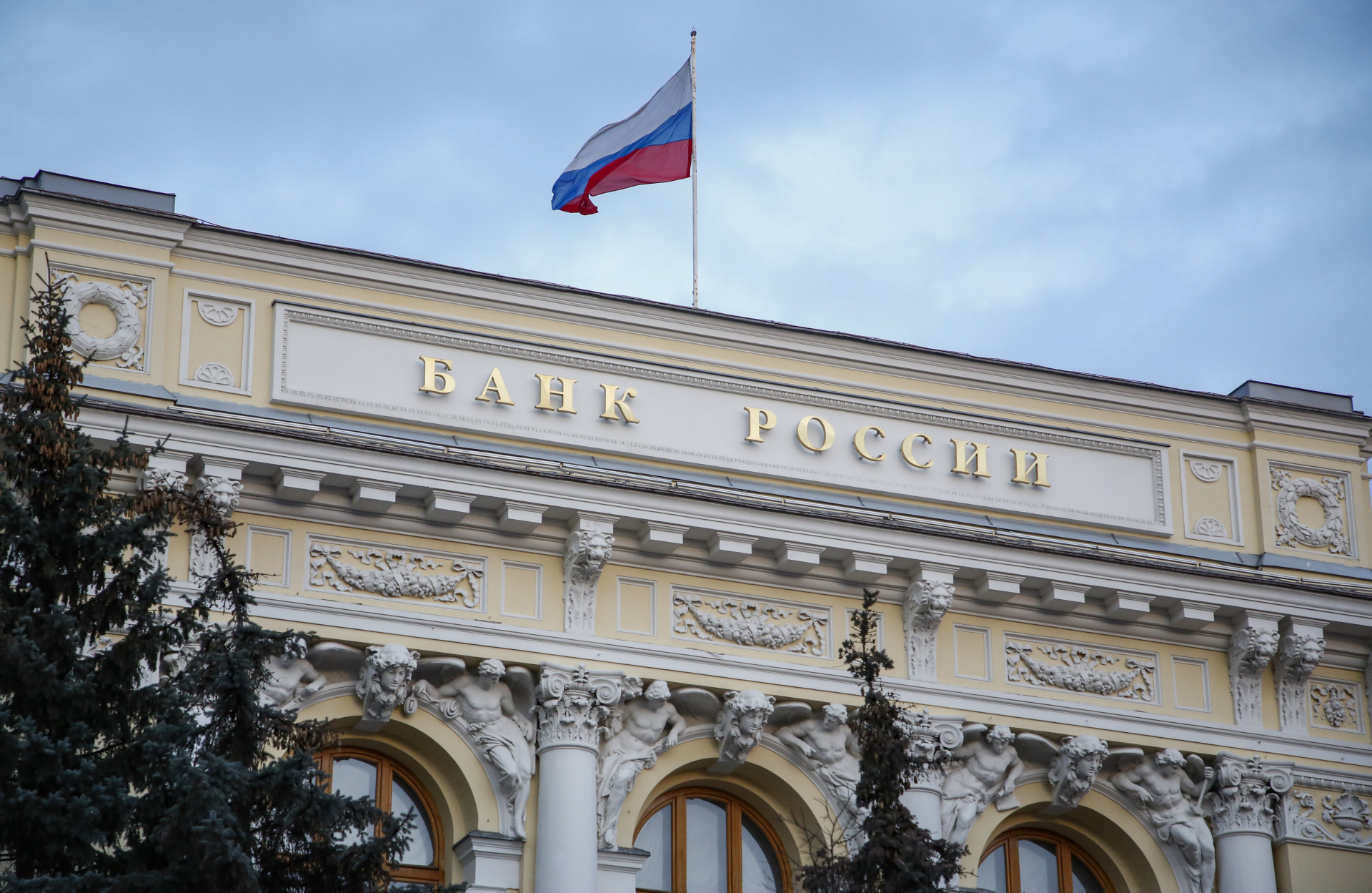SANCTIONS
Financial weapons
The unprecedented package of sanctions imposed by the G7 in response to Russia’s attack shows how the financial system can be used in geopolitical conflicts. In the future, nations will be more careful to avoid asymmetrical dependencies.
TEXT: SVEN HILGERS

SANCTIONS
Financial weapons
The unprecedented package of sanctions imposed by the G7 in response to Russia’s attack shows how the financial system can be used in geopolitical conflicts. In the future, nations will be more careful to avoid asymmetrical dependencies.
TEXT: SVEN HILGERS
Russia’s invasion of Ukraine has expelled any lingering illusions regarding the post-Cold War world order. A conflict between two large countries, one of which is also a nuclear power, was considered a thing of the past. Not any more. But this is not the only political certainty being taken away. The package of sanctions applied by the West led by the European Union and the United States is so comprehensive that it touches almost all policy areas. The financial system is particularly affected.
The measures taken by the G7 and other nations against Moscow’s war amount to the biggest package of sanctions in history, with far-reaching penalties in almost all economic sectors. Then there are the personal sanctions against business people, oligarchs and politicians. The entire kleptocratic clique around Russian President Vladimir Putin has now been largely cut off from the Western financial system. The assets of its members have been frozen and the authorities are coming down harder on criminal activity than hitherto. The sanctions in the financial sector have been particularly effective, too, for example the exclusion of large Russian banks from the Swift global payments network and the sanctions against the Central Bank of the Russian Federation.
Measures against central banks are unusual. They have also rarely been mentioned in the public domain, unlike the Swift exclusion. Until now, the US has only sanctioned the central banks of North Korea, Venezuela and Iran. Taking such action against a G20 member always used to be considered improbable due to the knock-on effects for the global financial system. The Western coalition has significantly restricted the central bank’s options to stabilise the rouble by deciding to prohibit all transactions with the Central Bank of Russia, freeze its assets and ban all dollar transactions with the bank.
Western sanctions against the Russian central bank in Moscow (shown here) have a particularly big impact on the Russian economy.
Depreciation of the rouble
So far, the Bank of Russia has not been able to prevent the depreciation of its own currency, which is fuelling inflation in Russia. The measures against the central bank are thus adding to the impact of all the other economic sanctions: the central bank has to adopt monetary measures that affect the general economy, for example interest rate increases. Whether that will be enough to make Putin negotiate in earnest and end the war remains to be seen. However, the decisiveness with which the EU, the transatlantic alliance and liberal democracies all over the world reacted to the attack has not gone unnoticed. The West has shown that it is able and willing to act in any political field. Beijing will have taken note of this decisive and united approach.
In Europe, this resolute use of financial measures is an expression of a new position with regard to authoritarian regimes, such as China or Russia. Geopolitical tensions between liberal democracies and authoritarian governments have increased markedly in recent years. So it comes as no surprise that China has yet to condemn Russia’s war of aggression, which contravenes international law. Both countries are aiming for greater independence from American and European financial infrastructure, while at the same time exploiting the accessibility of Western corporations and markets, in order to advance their regional and global strategic ambitions.
The Europeans have a different motivation. Since the Cold War, financial and economic policy has been geared towards prosperity, solid finances and change through trade. Lulled by a false sense of security, Europeans became negligent with regard to geopolitical risks. No matter if it was energy supply, the privatisation of public infrastructure or just cheap imports – nobody questioned how dependent parts of the EU were becoming. European cities like London were only too happy to welcome oligarchs and their money, whether legal or not. Those chickens have now come home to roost.
Avoid systemic dependence
It would be wrong to discard the principles of stable finances and sound fiscal policy because of these shortcomings now. At the same time, it is clear that the bigger picture is becoming more important, especially at a time of geopolitical tension. When awarding a government contract or privatising something, price can no longer be the sole consideration, avoiding asymmetrical dependencies has to be a priority, too. Liberal democracies are now joining forces against attempts by authoritarian regimes to undermine democratic decisions and freedom of opinion with economic pressure – as occurred recently in Lithuania and Australia, for example. Authoritarian aggression is now countered with more effective instruments, and that includes financial ones.
That doesn’t just mean sanctions at the national level. Oligarchs are also in the firing line. They have benefited from a reluctance to pursue criminal proceedings for illegal business practices in the past. The London financial centre (“Londongrad“) was to the fore in offering a haven for illegal funds, creating dangerous dependencies. And the connection between suboptimal anti-money laundering measures and competition between systems goes further still. Most, if not all, authoritarian regimes have kleptocratic elements as they are led by an elite subject to minimal, if any, legal restraints. Russia is only one of many examples. However, that is where these regimes are vulnerable.
Personal sanctions are important
The extent to which illegal money has corrupted governmental structures in liberal democracies, is a problem for the country in question as well as for the countries where the money was stolen through corruption and patronage. The ability to launder money in financial centres is an elementary part of this system. That’s why personal sanctions are now so important in acting against Putin’s regime. They should be the first move of a coordinated campaign waged by liberal democracies against dirty money. A decisive approach is not only an effective instrument against kleptocratic elites in authoritarian regimes, it is also a constitutional imperative.
There is nothing new about the interplay of geopolitics and the financial system, but as the competition between systems heats up, finance takes centre stage. The challenge is not to lose sight of other important objectives. A geopolitical crisis does not displace the basic rules of sound economic activity. The examples of combating white-collar crime or enforcing competition rules show how the rule of law and business go hand in hand.
A functioning economic model with sound financial policy creates the necessary scope to take effective action against aggressive autocrats and kleptocrats. Liberal democracies should cooperate more closely in combating illegal money, imposing sanctions and supporting each other in the face of counter-sanctions.

Sven Hilgers is a contributor for international economics at the Global Themes unit of the Friedrich Naumann Foundation for Freedom.

Sven Hilgers is a contributor for international economics at the Global Themes unit of the Friedrich Naumann Foundation for Freedom.
More articles
Josef Joffe // Braving the cold for Kyiv?
All of a sudden, the West remembers Schiller’s observation: “The most pious man can’t stay in peace, if it does not, please his evil neighbour.” There is more than just Ukraine at stake; Europe’s 77-year-old reign of peace, the longest ever, is on the line.
Wolfgang Gerhardt // A danger to the neighbours
Violence is an established component of the Russian box of tricks. But there is no war in which one wins what the other loses. There is just human suffering for everyone.
Sabine Leutheusser-Schnarrenberger // Putin on trial!
The only way to deal with the brutal and unscrupulous actions of the Russian ruler is to make clear decisions – and to use the full force of national and international justice. That is why Gerhart Baum and Sabine Leutheusser-Schnarrenberger have filed charges against Putin.
